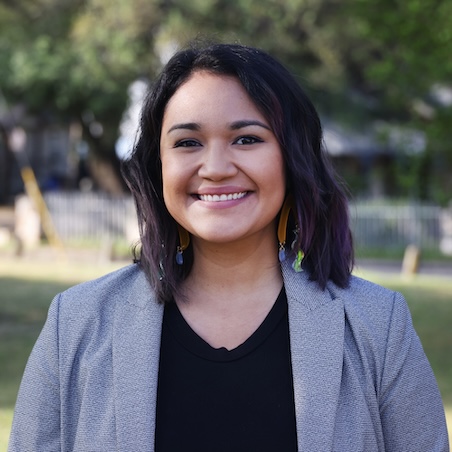
(Image: visoot/Adobe Stock)
Covering fair labor for clean energy construction workers, this story is part of From the Frontline, a guest-contributed column where we hear directly from those who are impacted by climate change and fighting for action. If you're interested in contributing your perspective to this column, please get in touch with us here.
Clean energy jobs are growing by the millions worldwide, showing that climate action can deliver on its promise of economic co-benefits. Unfortunately, we don’t have enough skilled workers to meet demand for a critical field. While nearly half of the workforce needed to meet 2030 decarbonization goals are in construction, more than 92 percent of U.S. electric power generation companies currently struggle to find construction employees.
This isn’t just a U.S. problem either. According to the latest World Energy Employment Report, it’s a global challenge. Construction workers are key to realizing our vision for a sustainable future. How can we honor their value and ensure a skilled and fulfilled workforce?
Casting a wide and inclusive net to meet demand for clean energy construction workers
Clean energy construction requires specialized training in areas like electrical work and wind turbine installation. Breaking down barriers to learning these skills is a necessary first step. Paid apprenticeships — now incentivized through tax credits in the U.S. — allow trainees to gain skills while getting paid. Childcare and transportation vouchers can also make a huge difference for working parents or individuals without reliable transportation. Since skills from the fossil fuel industry are transferable to clean energy, tapping into this workforce benefits employers and provides a transition pathway for workers at risk of job losses.
A wide net also includes making space for historically marginalized communities. Re-entry programs like Homeboy Industries' Solar Panel Training Program provide a second chance for individuals transitioning from the criminal justice system who may otherwise have difficulty finding employment. In the U.S., women and Black workers are underrepresented across well-paying careers like wind turbine technicians and solar installers. Targeted and paid efforts like Solar Energy International’s Women in Solar Program can be applied internationally based on local diversity opportunities.
Green construction as a quality career path
Inclusive training and recruitment alone won’t solve labor shortages. Diverse workers should have access to progressive careers in construction, yet there are existing gaps. For example, while over 30 percent of clean energy construction laborers are Latinx, this lowers to 10 percent for construction managers. Employers will need to intentionally identify and correct these types of disparities.
Building a strong reputation means ensuring family-sustaining benefits and dignified working conditions. Globally, construction worker compensation can vary by a factor of up to 20, and wages in the renewable energy sector lag behind the fossil fuel industry by about 38 percent.
Following international guidelines like the Anker Methodology for a Living Wage ensures workers are fairly and competitively compensated, no matter where they live. If we truly respect the value of these workers, though, we can’t stop there. Coupling fair wages with additional benefits like paid time off, employer-sponsored healthcare, workers’ compensation insurance, and savings can enhance job quality and reduce costly turnover.
While blanket worker protections may have good intentions, marginalized workers like migrants are disproportionately vulnerable to exploitation and need targeted protections.
In the U.K., 1 in 3 migrant construction workers have worked for no pay. In oil-rich Gulf Cooperation Council countries like Qatar, Saudi Arabia and the United Arab Emirates, migrant workers face initial debts from recruitment fees and late payments. The Employer Pays Principle, which notes that no worker should pay to get a new job, was developed as a response to unfair recruitment fees for migrants. In the U.S., rates of injury or death are disproportionately higher in Latinx construction workers, many of whom are migrants.
Culturally competent training in different languages ensures that all workers are well-versed in safety and health protections, their legal rights, available grievance mechanisms, and procedures for remedy.
Ironically, the labor needed to address climate change is also threatened by its very existence. Outdoor workers face disproportionate risk from unprecedented heat waves and wildfire smoke. Since global workplace protections vary, employers must implement proactive, mandatory outdoor safety standards, especially in regions prone to extreme weather. Recommended standards include proper acclimatization, mandatory water breaks, protective gear, training on symptoms of heat-related illness, and paid time off when conditions are deemed high risk.
Honoring workers by pledging accountability
Unions have a documented positive impact on labor conditions, but they’re not the only pathway for strong commitments. Mechanisms like Community Workforce and Project Labor Agreements provide mutually agreed-upon benefits and protections for union and non-union workers alike. Strong policies and ongoing due diligence are necessary to maintain accountability. Dedicated employers can advocate for high labor standards across their supply chain by requiring contractors and subcontractors to follow in their steps.
This issue is deeply personal to me. I come from a family of Mexican immigrants who moved to the U.S. in search of a better life. As a child, I lost my 26-year-old uncle to a construction site accident. He was working temporarily in the U.S. to support his newborn son. He deserved more protection than he was granted.
The industry should understand that the movement is not just about mitigating climate change — it’s about our moral imperative to protect people along with our planet. Our victory depends on construction workers. Why not treat them like they deserve?

Phoebe Romero is a clean energy professional dedicated to fostering collaborative cross-sector relationships to advance an equitable and just transition. Her experience growing up on the US-Mexico border shaped her perspective and passion for ensuring historically marginalized and frontline communities are centered in climate action.














